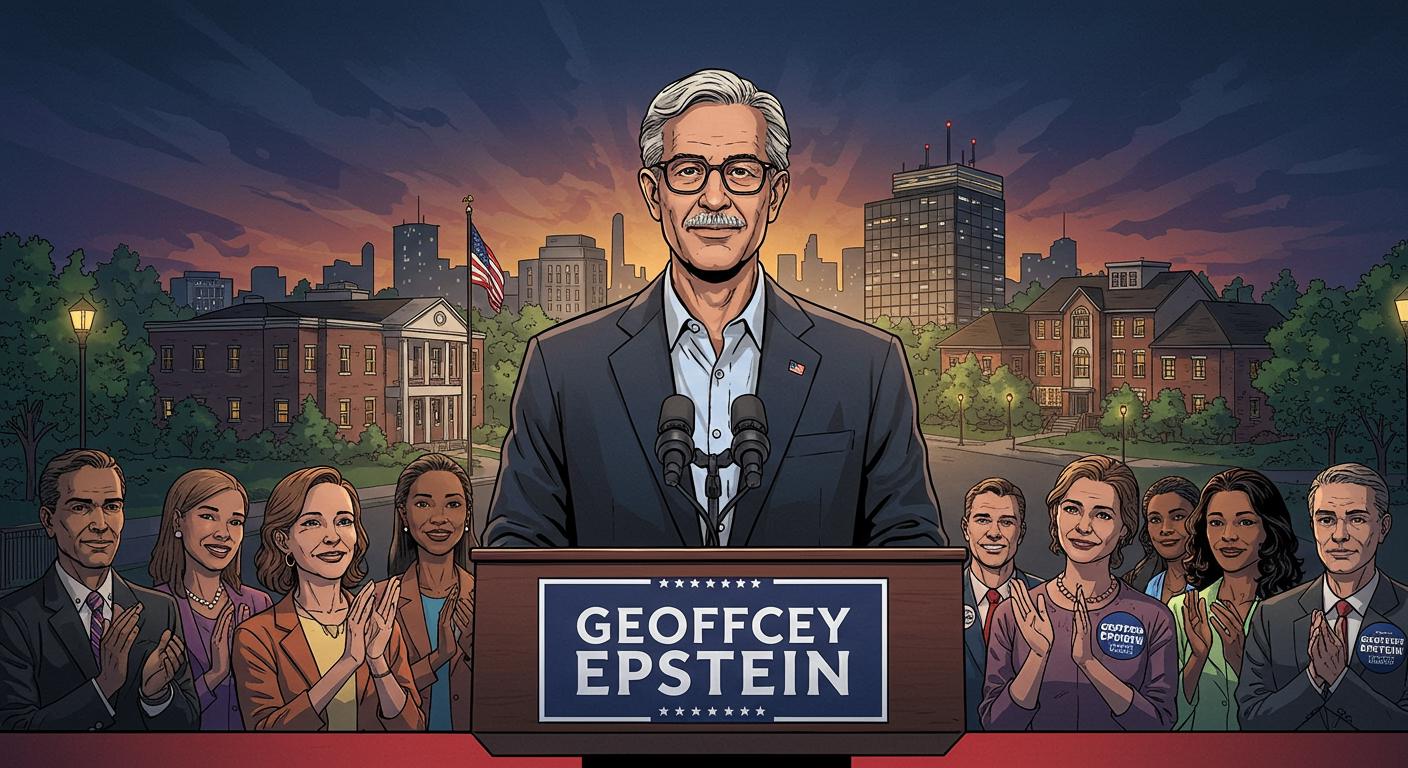If you’ve found yourself pausing at a campaign flyer in your Framingham mailbox labeled “Epstein for Mayor,” and experienced a moment of genuine confusion, rest assured: Geoffrey Epstein running for local office is not a sign you’ve slipped into a conspiracy timeline. As detailed in Politico’s reporting, Geoffrey—who invites you to call him Geoff—has to regularly clarify he is, in his words, “an alive Australian” and not “a dead American” associated with far seedier headlines. There are, it must be said, notable differences beyond spelling and jurisdiction.
Name Recognition: The Double-Edged Sword
Sometimes, having a name people remember isn’t quite the win it sounds like at marketing seminars. The awkward camaraderie of Geoff Epstein’s campaign was captured in Politico, which chronicles how he fields routine wisecracks from online onlookers demanding, for example, that he “show us the list.” On Reddit, reactions ranged from suspicious (“Is this guy for real?” next to a photo of his campaign mailer) to genuinely supportive, with locals who know Epstein from his years of school committee service chipping in with, “He’s got good ideas about the city’s finances.”
Politico relates that for actual Framingham residents, Geoff’s infamously shared name barely causes a ripple. Having been a fixture on the school committees in both Newton and Framingham—and having moved to the U.S. from Australia decades back—he’s managed to become the “Epstein who works on solar panels and school budgets,” rather than the headline-generating financier of infamy. For most, Politico explains, his record in education has accustomed them to the right face for the name. Such is the quiet magic of local politics, where word of mouth can sometimes outpace even the most dramatic Google autofill.
Campaign Proposals and a Financial Hurdle
If you’re wondering why someone would willingly enter this particular search-term nightmare, Politico lays out Epstein’s motives: his mayoral campaign is grounded in familiar civic causes like boosting local education, addressing infrastructure, and championing environmental sustainability. His proposals are less headline fodder and more practical to-do lists—think expanding solar installations on school roofs and into parking lots, alongside efforts to reroute city funds toward classrooms.
Of course, he faces an uphill battle in more ways than one. Politico notes that incumbent Mayor Charlie Sisitsky enters the fray with a hefty $61,000 war chest as of last month, while Epstein’s campaign fund sits at about $5,000. In a detail highlighted within the article, it’s hard not to wonder if at least a portion of the fundraising gap comes courtesy of a name that requires an explanatory footnote at every cocktail hour.
Public Life According to the Law of Unintended Name Association
There’s an inescapable, oddly comedic note to sharing a name with someone notoriously infamous. Politico draws a parallel to Harvey Epstein, current New York state assemblymember, who’s spent his career fending off confusion with, in comedian John Mulaney’s wry “SNL” phrasing, “two of New York’s most notorious sex perverts.” Yet, the outlet also notes, this didn’t stop Harvey from snagging a win in the Democratic primary for a New York City Council seat, even against a comeback attempt by Anthony Weiner—an additional name with, let’s say, challenging political baggage.
Harvey Epstein’s advice for the Framingham candidate, relayed by Politico, seems decidedly workmanlike: focus on your actual record, lead with substance, and build trust. Local voters, perhaps, care less about a Wikipedia rabbit hole than they do about a history of showing up for city issues.
When the Flyer Makes You Blink
At some level, it’s hard not to appreciate the strange fairness implicit in how context softens the sharp edge of unlucky branding—at least locally. It’s not hard to imagine similar scenarios: Would the voter at your polling station hold it against you if your name matched the internet’s current favorite villain? Or would your years of coaching soccer and PTA volunteering win out against digital happenstance?
In the end, as the outlet’s coverage quietly suggests, Framingham’s race is less about a notorious headline than about whether a city sees past algorithmic association and recognizes one of its own—albeit a uniquely named one. So the next time a political flyer stops you in your tracks, maybe ask: what’s in a name, when you already know the person behind it? Sometimes the oddest details make for the most ordinary campaigns.







